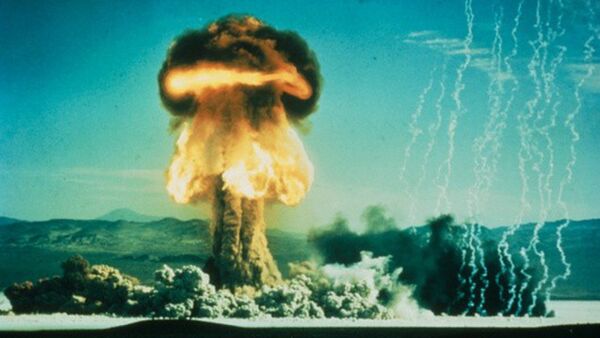The plan, codenamed "Operation Shimshon (Sampson)," was to detonate a nuclear weapon on top of a mountain on the Sinai Peninsula, and though the operation never got off the ground, the revelation may shed light on the intentional ambiguity that has come to define Israel’s nuclear policy for years.
The "doomsday operation" was detailed on Monday by the Nuclear Proliferation International History Project of the Woodrow Wilson International Center for Scholars. According to researchers, it was put in place to intimidate Arab countries like Jordan, Egypt, Iraq and Syria.
Much of the details were revealed in taped interviews with now-deceased brigadier general Itzhak Yaakov with Dr. Avner Cohen, a scholar of Israel’s nuclear history and a global fellow at the center.
Cohen explained on the Wilson Center website, "To be clear, the operation would have been purely demonstrative, yet the crash effort to make such a contingency plan possible is indicative of the enormous anxiety in Israel in those days…. If everything else failed and Israel’s national existence was in peril, the state would still have a trump card."
Yaakov said during one interview in 1999, "Look, it was so natural … You’ve got an enemy, and he says he’s going to throw you to the sea. You believe him. He says he’s going to throw chemical weapons on you…. What are you looking for? Anything you can do to stop him. How can you stop him? You scare him. If you’ve got something you can scare him with, you scare him."
Though it was known that Israel had completed its first atomic weapon, the planned demonstration had remained a secret.
Cohen also interviewed former Israeli Chief of Staff Zvi Tzur in 2001, who suggested that the Shimshon operation was a way for Israel to evaluate its options in the war at the time, given their technical capabilities.
Tzur said, "I’m not talking about creating a weapon that would knock the world. I’m talking right now about the option of a test that would make people understand that we should be taken seriously. In those days we didn’t even have that option."
To obstruct calls for denuclearization in the Middle East, Israel has never acknowledged its nuclear arsenal, and had Israel followed through with the operation it would have been the first time a military conducted a nuclear detonation since 22 years earlier, when the US dropped atomic bombs on Hiroshima and Nagasaki.




